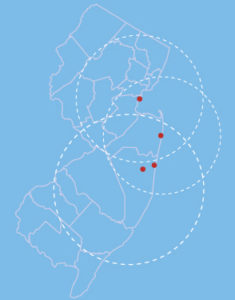Sooner or Later, Special Needs Students Must Self-Advocate

Special needs educators feel a certain responsibility to teach their students to help themselves. In the path that most children follow, they are groomed for the dog-eat-dog competition that the real world can often be. Special needs educators know their students will eventually have to thrive in that same world. That is why they are taught self-advocacy.
Teaching Special Needs Students to Self-Advocate:
As youngsters, autistic children can count on parents, teachers, friends and family members to advocate for them. It is typical for this level of protectiveness to last longer than it would for your average child. Regardless, in order to achieve varying levels of independence, individuals with Autism Spectrum Disorder (ASD) must be taught self-advocacy skills. This is the best way to improve confidence and accessibility for them as adults.
What are the benefits of teaching autism self-advocacy skills?
One day, your child’s support network might not be around or as available. Over time depending upon their level of disability and needs, they may be able to learn, work and live comfortably with some degree of independence. That would require learning self-advocacy. Teaching self-advocacy builds self-confidence. Students learn to make the most of their reality and use their gifts to achieve their goals. The hope is that society will see this and embrace disability. Life will improve for all autistic or otherwise disabled people. They will find peace, acceptance and independence as they learn to communicate their special needs and utilize their talents.
As for parents, it is easy to grow comfortable advocating for your child. Most of the early education for special needs children is the responsibility of the parent. It may be hard to know when it is time to let go. However, the knowledge and skill must eventually be passed on to autistic children.
What are some tips for teaching autism self-advocacy?
Autistic individuals must eventually understand what autism is and how they are affected by it. Teach them about it. They don’t have to have full comprehension of the neurological condition but they can learn some of the basic diagnostic criteria. Eventually, they will be ready to read the writings of other self-advocates who have shared their own experiences. Just as they share how they were individually affected, your child must learn how he or she is uniquely affected.
What are their strengths and weaknesses? You know them, but do they? Teach them how to assess, identify and articulate. Most importantly, share your own. Share the strengths and weaknesses of others. Let them know that this is not unique to autism. We all have them.
There is a time and a place to disclose their needs. They must know this. They must also know the difference between needs and preferences. Self-advocating sometimes requires full disclosure. This means learning to choose your battles. There may be situations where an individual with ASD can delay or achieve a preference on his or her own. Other times, requesting a specific accommodation is necessary. Other than when and where, don’t forget how. Help the child practice saying a statement that explains his most important needs, for example.
Individuals on the spectrum are continually discovering and utilizing new resources to meet their needs. This might mean assistive technology. It could mean specific advocacy and disability support organizations. It could simply be a matter of knowing the right person to vocalize your needs to.

Alpha School an private special education school in New Jersey
Our Mission at The Alpha School is to help all of our special needs students with the learning, social, language, and behavioral support they deserve. Our highly skilled staff are committed daily to helping each student to becoming the best they can while providing a safe and nurturing educational environment.
We would be more than happy to discuss your child’s specific needs and challenges, so please call us at 732.370.1150, or request a tour of Alpha School of Jackson, NJ located just minutes off of Route 9 and Route 195 in Ocean County.
— Monica DeTuro, Principal-Alpha School, Jackson, NJ
About RKS Associates
At all the RKS Schools we pride ourselves in discovery the hidden treasures of all of our students. Our academic and support services are appropriately customized for a student unique and diverse needs so that they can reach their full potential.
Alpha School is part of special needs network of schools located in Monmouth, Middlesex and Ocean County New Jersey. Since 1980 the RKS Associates schools have been leaders in helping special needs helping students with various disabilities including autism, Down's syndrome, communication, learning, social, behavioral and emotional disabilities. The range of services RKS schools provide is academic instruction and speech, occupational and physical therapies. In addition to Life Skills, Technology, and a full complement of Support Services.



